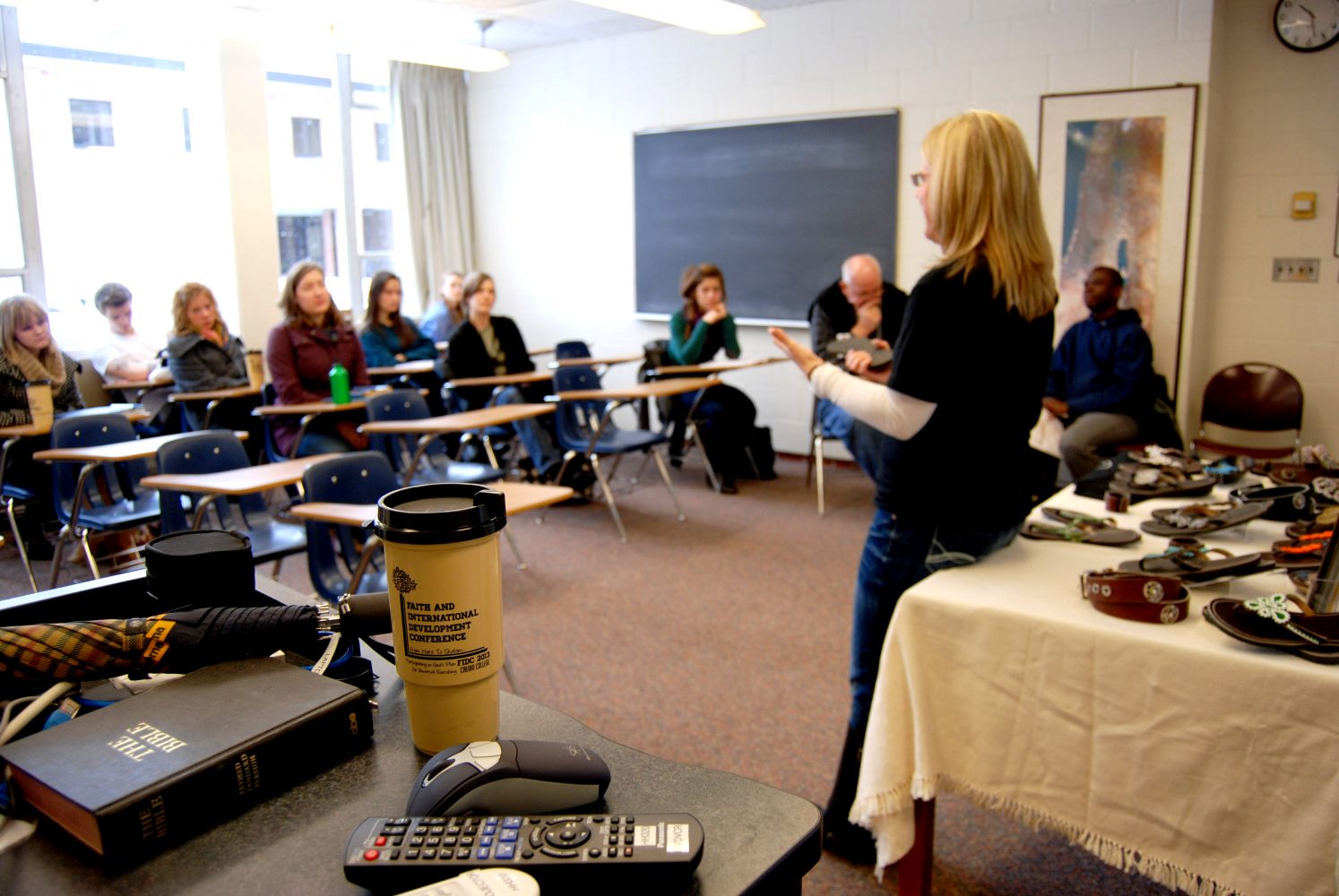“I feel like at these liberal arts schools we can be so closed-minded,” said Lindsay Stork, a senior at Bethel College in Indiana.
“We get into this ‘Bethel bubble’ or ‘Calvin bubble’ and are just disconnected from the real world. That’s why it’s good to interact with people from other colleges, to start to hear that there are other options.”
Stork, along with 330 other students from schools all over the United States and Canada, attended Calvin College’s Faith and International Development Conference (FIDC) last weekend. The conference hosted speakers involved in development around the word as well as many breakout sessions that served to educate and inspire students with goals to work in development-related fields.
The FIDC is a completely student-run conference that Calvin has hosted for the last eight years. This year’s student directors, Derek Buursma and Lauren Walker, both seniors, have been working on planning the conference for nearly a year.
In the past, the FIDC has hosted such prominent names as philosopher Nicholas Wolterstorff and activist Leymah Gbowee, who went on to win a Nobel Peace Prize for her peacemaking in Liberia. However, Calvin professor, and one of this year’s speakers, Roland Hoksbergen points out that “many of our speakers are unsung heroes, folks who work in faraway places and whose names aren’t widely known, but who do effective work and come to tell us about it.”
This year the conference’s theme was “From Here to Shalom: Participating in God’s Plan for Universal Flourishing,” and included speakers like Dr. Ravi Jayakaran, Vice President of Global Programs for MAP International, and Steve Radelet, a former chief economist for USAID. Hoksbergen, author of “Serving God Globally: Finding Your Place in International Development,” also spoke, in addition to serving as the faculty mentor throughout the conference planning process.
“When students are in college,” Hoksbergen said, “It is easy to get into an academic bubble, bury your nose in books for four years and then emerge back into the real world four years later. A conference like this serves to connect people with that world again.”
“I’m aware of many connections being made between students and organizations for internships and entry level positions. There is a lot of learning that takes place because there is such a rich array of development activities that the students can learn about: health, business, advocacy, agriculture, hunger, peacebuilding and much more. There is also a lot of networking as participants get to know others in the field, including other students.”
It is this networking that student directors Buursma and Walker emphasized as a key point of the conference. “It does have international development in the name,” Buursma said, “But because it is such a broad field that connects so many different areas, you don’t have to be in the IDS program to benefit. When we chose the plenary speakers we tried to be diverse about the speakers’ areas of interest and where they came from in the world so it would appeal to a lot of different people.”
“Whatever your field,” Walker added, “There is probably an organization that will interest you.”
Students attending the conference, some of whom came from as far away as New York and Georgia, are majoring in everything from business to zoology. Their only immediate connection was that they wanted to better understand how to make a difference internationally.
However, though visiting students came from many majors, Calvin attendees were almost exclusively involved in the international development studies program. Of the 50-60 Calvin students, nearly all were committee members or volunteers with the conference.
“Lauren and I really want Calvin students to know that this is our event,” Buursma said. “This is something we put on as a community here. Students from colleges in Canada and Georgia know about it and are excited about it, so it’s kind of sad that not a lot of Calvin students know about it.”
“The conference may be most attractive to IDS students at Calvin,” Professor Hoksbergen said, “But anyone with an interest in global affairs would do well to take note and attend. It gives them a vision of why their studies matter and a growing sense of what their own mission in life might be once they leave school.”
Calvin has long emphasized cross-cultural engagement as a necessary part of a liberal arts education, even requiring cross-cultural experience to graduate. As business and society become more international, conferences like the FIDC can equip students to live and work in a global world.
“Even if you don’t see yourself going overseas, it’s really good for you to meet other people who have similar passions. It opens your mind to all the opportunities that you have right here,” Lindsay Stork said. “I think Calvin College does a great job with this.”
Each year, the FIDC offers a chance for students to lead in a way that educates others and prepares them to serve around the world. “That,” Hoksbergen says, “is what education at Calvin is all about.”








